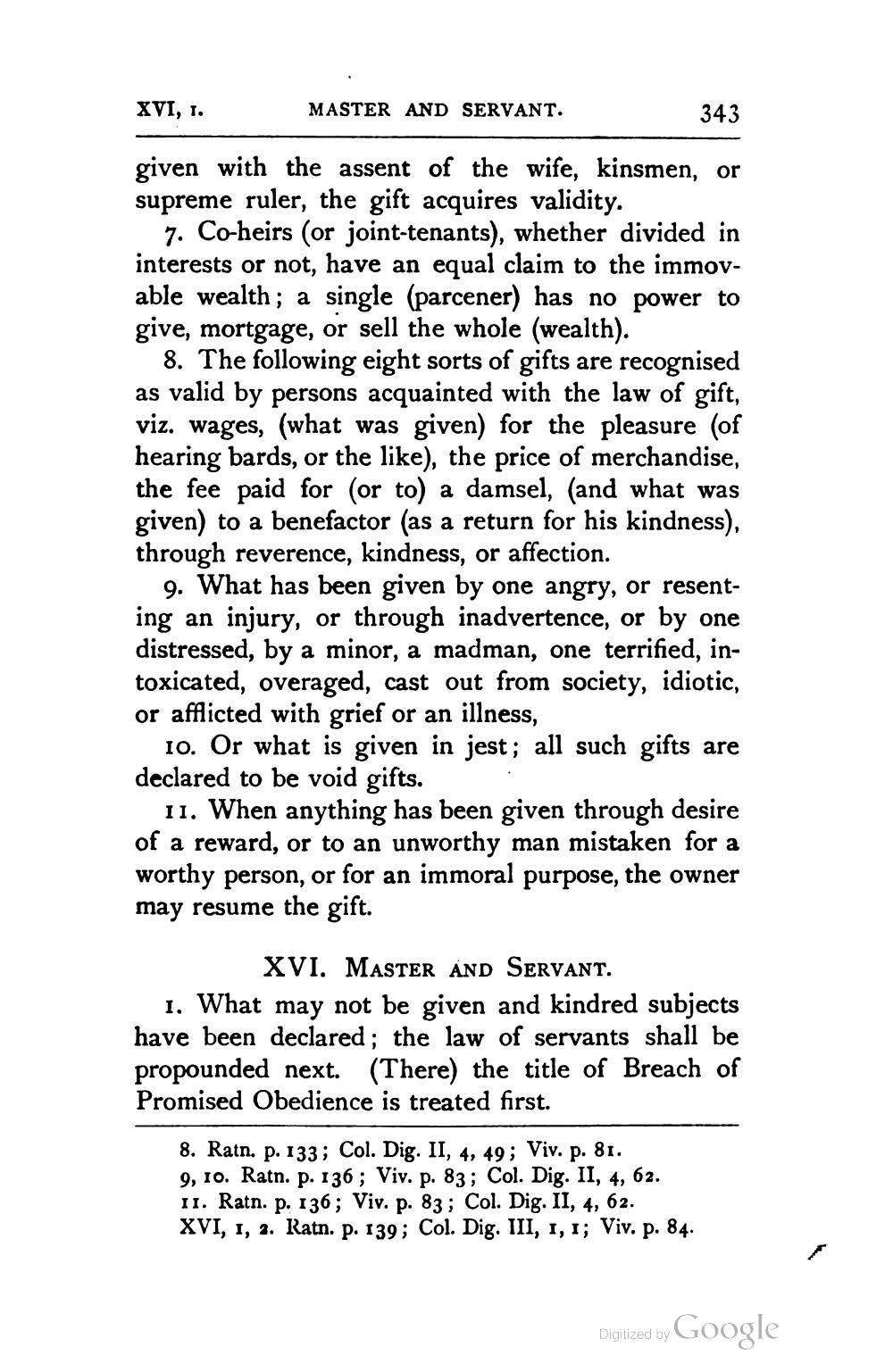________________
XVI, 1.
MASTER AND SERVANT.
343
given with the assent of the wife, kinsmen, or supreme ruler, the gift acquires validity.
7. Co-heirs (or joint-tenants), whether divided in interests or not, have an equal claim to the immovable wealth; a single (parcener) has no power to give, mortgage, or sell the whole (wealth).
8. The following eight sorts of gifts are recognised as valid by persons acquainted with the law of gift, viz. wages, (what was given) for the pleasure of hearing bards, or the like), the price of merchandise, the fee paid for (or to) a damsel, (and what was given) to a benefactor (as a return for his kindness), through reverence, kindness, or affection.
9. What has been given by one angry, or resenting an injury, or through inadvertence, or by one distressed, by a minor, a madman, one terrified, intoxicated, overaged, cast out from society, idiotic, or afflicted with grief or an illness,
10. Or what is given in jest; all such gifts are declared to be void gifts.
11. When anything has been given through desire of a reward, or to an unworthy man mistaken for a worthy person, or for an immoral purpose, the owner may resume the gift.
XVI. MASTER AND SERVANT. 1. What may not be given and kindred subjects have been declared; the law of servants shall be propounded next. (There) the title of Breach of Promised Obedience is treated first.
8. Ratn. p. 133; Col. Dig. II, 4, 40: Viv. p. 81. 9, 10. Ratn. p. 136; Viv. p. 83; Col. Dig. II, 4, 62. 11. Ratn. p. 136; Viv. p. 83; Col. Dig. II, 4, 62. XVI, 1, 3. Ratn. p. 139; Col. Dig. III, 1, 1; Viv. p. 84.
Digitized by Google




